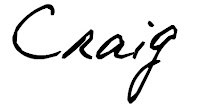I had never had that chance until recently. I got a jury questionnaire from my county, which asked some basic questions, including my availability during the May-June timeframe. I quickly filled out the form and sent it back in.
In late April, a jury summons arrived. It gave me a date to report, along with a phone number to call the evening before, to see if they actually needed me. I called the number, and it turned out that they did not. I was sad. But I received another summons, and on the appointed day before, I called the number, and was told to show up the next day. My time to shine had arrived!
Without being too specific, I will recap the proceedings. Things moved pretty fast in the courtroom. The morning was devoted to the jury selection process. After being questioned en masse by the prosecutor and defendant's lawyer in turn, and being given time to plead why we were unable to serve, we were sent away for lunch while the lawyers picked a jury. After lunch, the jury was seated, and opening arguments began in the DUI case before us. The only key to escaping jury duty I came away with, for those of you who would, for whatever reason, want to do such a thing, is to admit to having previously been cited for the offense being tried in the case at hand. It seems to also help to claim the citation was unfair.
The opposing lawyers were a marked contrast. The prosecutor was kind of nerdy, worked alone, and wore a nondescript, off-the-rack suit. Defense counsel had slicked-back hair, an expensive suit, and an attractive young assistant. They did their thing, and the trial wrapped up at around 7 pm, at which time we retired to the jury room.
Since I like to take charge, and since I figured nobody else would want to, I volunteered right off the bat to be foreman, and there was no opposition. My first act was to laboriously read out the judge's instructions, then the question arose as to whether we should vote right away. I was against this, because a) the instructions said to start by reviewing the evidence, and b) I didn't want our deliberations to end after five minutes, in the case of unanimity. But the sentiment in the room was against me, and so we took a hand-raising vote, and it was 6-6 (I asked if people wanted to vote on paper, but those who spoke up said no). So we started to chat.
Because of various doubts the defense raised, sentiment moved towards an acquittal. At this point, one guilty voter changed his mind, openly giving the reason that he wanted to wrap things up. He tried at various times for the rest of the evening to give the remaining guilty voters ways to change their vote without completely violating their conscience (e.g."he's already suffered for some time under this cloud of suspicion", and "that lawyer cost him a lot of money"). A bit later, a second guilty vote changed for similar reasons. At this point, I was part of a small band of holdouts. As we could not reach a decision, we were sent home for the evening.
At this point, I was somewhat disillusioned, due to the two get-things-over-with voters, and also because of some of the lame arguments I was hearing from some of the jurors ("the Breathalyzer must be wrong, because if he was really that drunk, he'd have been falling all over"). But a remarkable thing happened the next day.
Upon reconvening, we took another vote right away, and several jurors had changed their minds. They had found the Breathalyzer evidence too difficult to ignore (the reading was well over the legal limit), even though it was attacked during the trial. This noticeably had an effect, as the remaining acquittal votes, who had seemed so resolute the night before, started to waver. After some discussion, and further movement towards conviction, we requested to review some of the evidence. I had intended to wait until it arrived to vote again, but I sensed that 12 votes were there, so I called for a show of hands. As the evidence finally arrived, I was simultaneously able to hand a guilty verdict form to the bailiff.
On a sad note, I did not get to read the verdict in court. The judge read it, and I was merely given the task of confirming that it was correct.
Of course, jurors are ordered not to do outside research while a trial is in progress, but once it ended I looked up our fair defendant on Missouri Casenet to see if he had priors, and he did, having been involved in (from what I could gather from the legalese on the website) at least two prior drinking-and-driving incidents. When I read that, I wished I would have been able to call every member of the jury to say "See?! See?!"
As a takeaway to future jurors out there, here are my major lessons learned:
- People's opinions often aren't as firm as they might first appear, so early verdict momentum may be meaningless, and your deadlock may not be as intractable as it seems.
- A night's sleep can make a big difference in deliberations.
- Not every juror approaches the task with anything like the conscientiousness of Henry Fonda in 12 Angry Men.


No comments :
Post a Comment